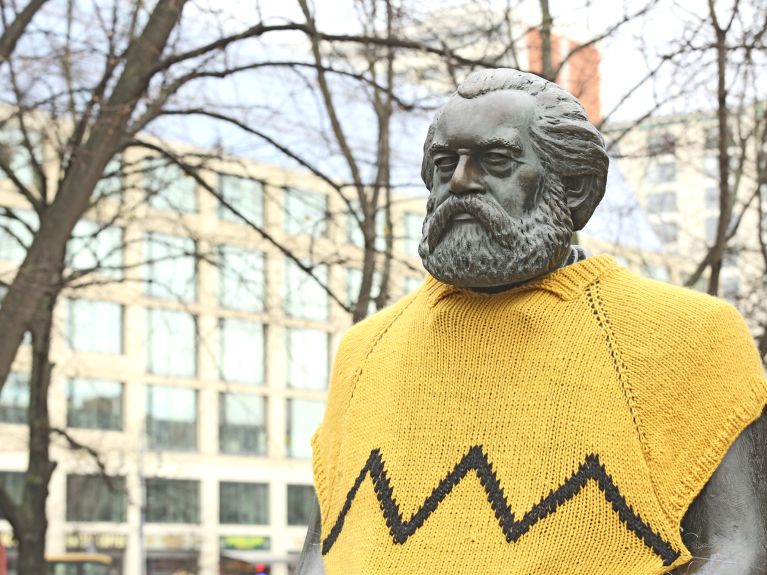What Karl Marx has to tell us today
What does Karl Marx mean for the modern world of work? A look at Industry 4.0, New Work and permanent online availability.

Karl Marx and Industry 4.0: is work easier now?
How things have changed! Whereas factory work in Karl Marx’s time was often physically painful, now in the industrialised countries Industry 4.0 and digitalisation are taking more and more tasks out of people’s hands. Smart robots reduce the physical burden on human colleagues, and digital expert systems assist in decision-making. Do we still need to talk about Marx? Yes, says his biographer Jürgen Neffe: “According to Marx, work is the only source of value. And if we now gradually eliminate it in the wake of Industry 4.0 with big data and robots, then we have to rethink the whole system.” Neffe thinks, for example, this could involve a tax on machines or a basic income. “All of this already exists directly or indirectly in the Marxian world of ideas – as well as the highly topical question of whether we live to work or work to live.”
Video about Karl Marx and alienation:
Dieses YouTube-Video kann in einem neuen Tab abgespielt werden
YouTube öffnenThird party content
We use YouTube to embed content that may collect data about your activity. Please review the details and accept the service to see this content.
Open consent formKarl Marx and New Work: new freedom?
Thomas Sattelberger, a supporter of the New Work movement that advocates greater flexibility, likes to cite the writings of Karl Marx: “Truly wealthy a nation, when the working day is 6 rather than 12 hours.” In particular, he says, wealth is “disposable time”. Sattelberger draws a direct line from this to the pay agreement concluded by IG Metall, the German trade union, that attracted a great deal of attention in February 2018. One of its main results is that employees who have young children or care for family members and shift workers will be able to choose between more money or more free time in the future.
Karl Marx and digitalisation: has everything moved back 200 years?
IT expert and academic Timo Daum has written a widely discussed answer to Karl Marx called “Das Kapital sind wir. Zur Kritik der digitalen Ökonomie” (We Are Capital. A Critique of Digital Economy). In his book he writes: “Overtime, permanent availability and the blurring of the dividing lines between working hours and free time characterise a world of work shaped by computers and digital communication. Largely abolished today, factory sirens once marked a clear separation between work and free time. Now the limits of working time have become soft and blurred, and free time has mutated to standby.” That sounds as though people could well use 200-year-old Karl Marx in the future.

